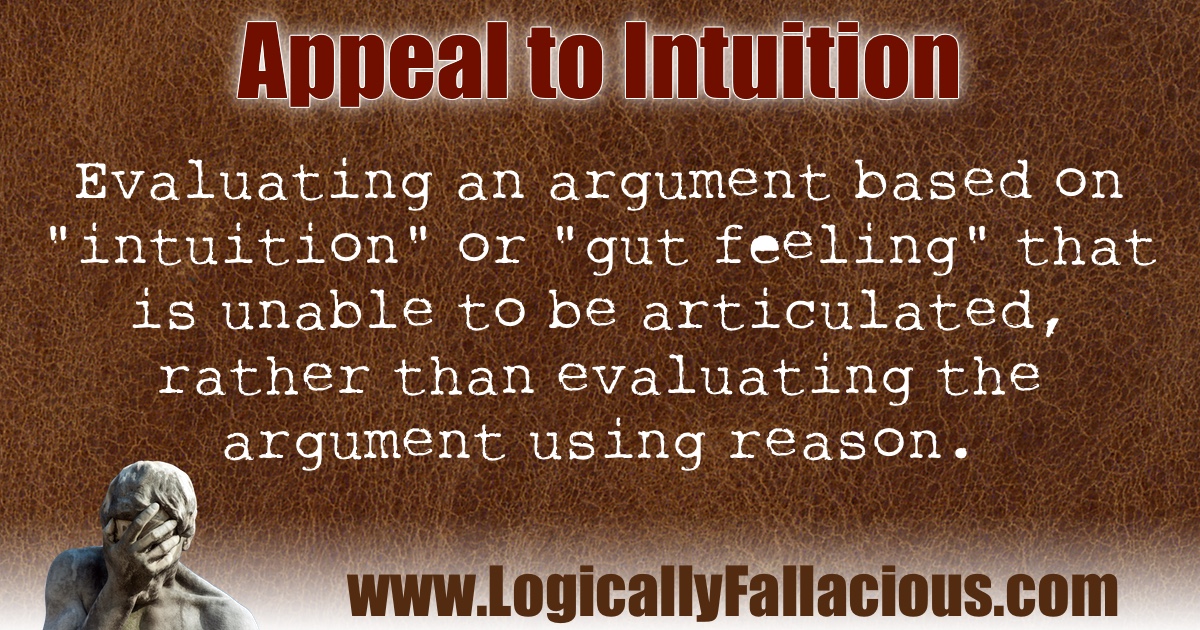(also known as: appeal to the gut)
Description: Evaluating an argument based on "intuition" or "gut feeling" that is unable to be articulated, rather than evaluating the argument using reason.
Logical Forms:
Evidence is given for argument X.
X doesn't match person 1's intuition or gut feeling.
Therefore, argument X is rejected.
Person 1 has a gut feeling about claim X.
Therefore, claim X is true.
Example #1:
Nick: Did you know that if the sun were just a few miles closer to Earth, we would burn up, or if it were just a few miles further away we would all freeze? It is like someone put the sun there just for us!
Suzy: Actually, the distance of the sun from Earth varies from about 91 million miles to 94.5 million miles, depending on the time of year.
Nick: That can't be right. The sun never appears a few million miles further away!
Explanation: Besides Nick's flat out rejection of a fact, Nick is evaluating Suzy's refutation based on what feels wrong to him. Nick is abandoning the reasoning process.
Example #2:
Maura: Stop wasting your money on those scratch-off lottery tickets. You know the odds are seriously stacked against you, don't you?
Philip: I do, but I have a really good feeling about this next batch!
Explanation: Maura makes a good argument as to why Phillip should not buy any more tickets, but Philip abandons the reasoning process and makes an appeal to his intuition.
Exception: This doesn't include arguments where subjective feeling plays a significant role.
Maureen: So who are you going to marry?
Joanne: Martin. I have a much better feeling about my future with him than with Tony.
Tip: Intuition can be defined as the sum of our experiences reflected in the feeling of knowledge that cannot be articulated. For example, if one has 30 years of experience as a firefighter, they may “know” when not to open a door in a burning building but not be able to explain why rationally. The problem is, in the moment, intuition is indistinguishable from imagination. When we get these feelings, if time permits, we should do what we can to back them up rationally.

References:
This a logical fallacy frequently used on the Internet. No academic sources could be found.
Questions about this fallacy? Ask our community!